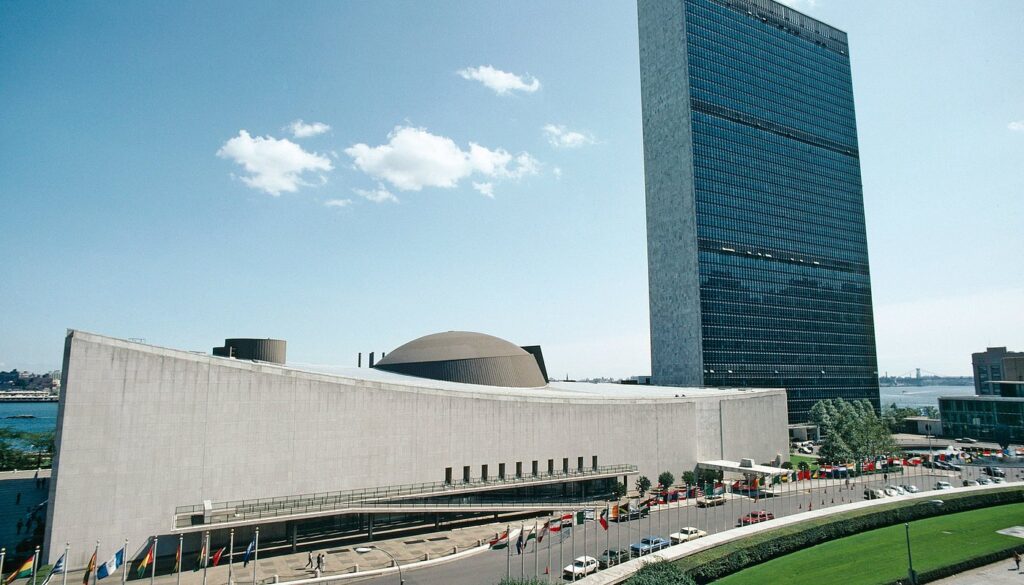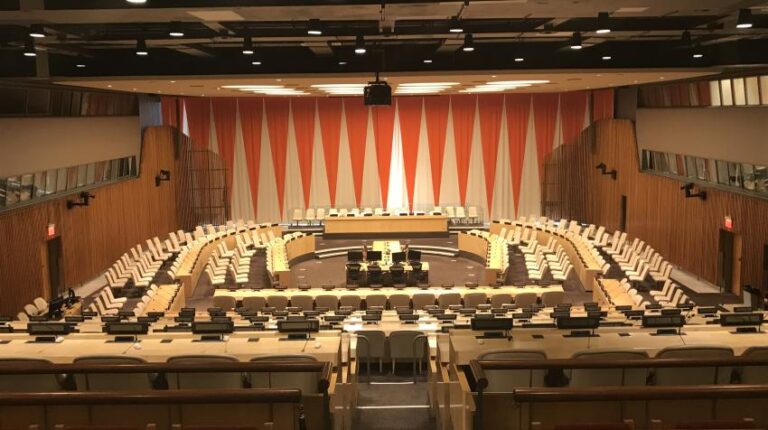Accreditations
Excellence acknowledged – learn about our UN Special Consultative Status

At its Coordination and Management Meeting in April 2018, the Economic and Social Council (ECOSOC) approved the recommendation of the Committee on Non-Governmental Organisations (NGOs) to grant Special Consultative Status to Euro Atlantic Diplomacy Society.
NGOs have actively collaborated with the United Nations (UN) since its establishment in 1945. They engage with the UN Secretariat, programmes, funds, and agencies in various capacities, including consulting with Member States. NGOs contribute to a wide range of activities, such as disseminating information, raising awareness, providing development education, advocating for policies, implementing joint operational projects, participating in intergovernmental processes, and offering services and technical expertise.
Article 71 of the United Nations Charter, which established the ECOSOC, states the following:
“The Economic and Social Council may make suitable arrangements for consultation with non-governmental organizations which are concerned with matters within its competence. Such arrangements may be made with international organizations and, where appropriate, with national organizations after consultation with the Member of the United Nations concerned.”
United Nations Charter, Chapter X, Article 71
Article 71 of the UN Charter opened the door to providing suitable arrangements for consultation with non-governmental organisations. The consultative relationship with ECOSOC is governed today by ECOSOC resolution 1996/31, which outlines the eligibility requirements for consultative status, the rights and obligations of NGOs in consultative status, procedures for the withdrawal or suspension of consultative status, the role and functions of the ECOSOC Committee on NGOs, and the responsibilities of the UN Secretariat in supporting the consultative relationship.
The United Nations has been working to strengthen cooperation with NGOs across the entire UN system and in all areas of its work. UN entities are exploring new ways to foster greater and more strategic participation by NGOs. ECOSOC needs and wants expert opinions, ideas, and suggestions from civil society. To this end, NGOs are often encouraged to submit written statements on subjects under the different areas of work of the Council. Resolution 1996/31 states the following about written statements:
“Written statements relevant to the work of the Council may be submitted by organizations in general consultative status and special consultative status on subjects in which these organizations have special competence. Such statements shall be circulated by the Secretary-General of the United Nations to the members of the Council…”
ECOSOC resolution 1996/31, part IV, paragraph 30

ECOSOC resolution 1996/31, part IV, paragraph 30
Written Statements submitted by Euro Atlantic Diplomacy Society
EAD Academy
Unlock new opportunities through our training programmes designed to foster adaptability, strategic thinking, and long-term success

Resilience & Business Continuity Planning
Leadership Style and Argumentation Skills
The ESG Playbook: Environment, Social and Governance
Mentorship & Coaching
